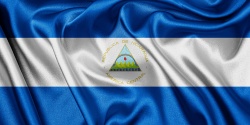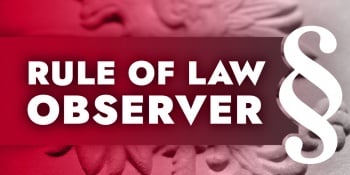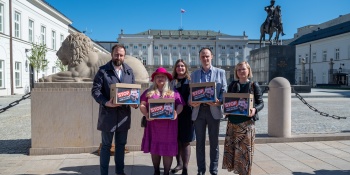Published: 10.01.2024

- The scale of repression against the faithful of the Roman Catholic Church is growing rapidly in Nicaragua, whose representatives have criticized the unlawful actions of President Daniel Ortega.
- Among other things, Ortega's regime is making mass arrests of clergy, confiscating church property, censoring prayers, banning processions and pastoral ministry in prisons.
- Reactions by representatives of the UN, the Holy See, Catholic organizations, as well as subsequent sanctions imposed by the US government and the EU on Nicaragua, are not yielding the desired results.
- Those who publicly declare their Catholic faith may be considered traitors to the homeland - like Miss Universe Sheynnis Palacios, who is from Nicaragua.
Political background
Nicaragua is mired in a social and political crisis that began after the government's crackdown on peaceful protests in April 2018. Daniel Ortega's administration began attacking the Catholic Church after clerics provided assistance to the demonstrators. Although the Church initially tried to broker a national dialogue between the protesters and the government, the situation began to move in a dangerous direction for Catholics. As a result, since 2018, government entities and citizens sympathetic to the regime have been harassing the clergy, as well as the lay faithful. The situation was exacerbated after the next presidential election. In January 2022. Daniel Ortega was once again sworn in as president of Nicaragua. His wife Rosario Murillo was given the position of vice president. Their political party, the Sandinista National Liberation Front (FSLN), controls the country's legislative body. Doubts about the legitimacy of the elections have given rise to mass popular protests against Ortega's rule. This has been met with a strong response from the president, who is reaching for various tools to suppress the opposition. The Catholic Church has openly opposed the repression and human rights violations. As a result, religious leaders who speak out critically about the government face increasing threats and police make arbitrary detentions even for preaching on unity or justice.
Escalating persecution of the clergy
In March 2022, Apostolic Nuncio Archbishop Waldemar Sommertag was expelled from the country. According to Christian Solidarity Worldwide (CSW) - the authors of a report on persecution in Nicaragua - this was due to his appeal to the authorities to release political prisoners and improve their detention conditions. Since August 2022, the right to religious freedom has been restricted, for example, processions have been banned. In addition, an official ban on hanging religious symbols in front of homes has been introduced. Political prisoners, meanwhile, are not allowed to possess Bibles or any religious literature, and have been deprived of their right to pastoral care.
In 2022, the Nicaraguan government dramatically stepped up efforts to eliminate all forms of independent civil society in the country, revoking the legal status of 1,545 organizations. Several universities and technical institutes affiliated with both Roman Catholic and Protestant religious groups were also stripped of their legal status in 2022. Lawyers affiliated with the CCA believe the reason was the lack of loyalty of university authorities as well as students to the Ortega government.
In December 2023, Bishop Isidoro del Carmen Mora Ortega was detained and accused of supporting through prayer Bishop Rolando Jose Alvarez Lagos, who was sentenced in February 2023 to 26 years in prison. The latter cleric, according to those in power, was alleged to have supported President Daniel Ortega's opponents by "spreading false news through information and communication technologies." A report titled "Nicaragua: A Persecuted Church?"[12] shows that between 2018 and 2022 there were 529 attacks on the Catholic Church in Nicaragua. According to the report's author, representatives of the clergy face various forms of repression by representatives of President Ortega's administration. The most common are persecution, profanity, destruction, looting, expulsion from the country as well as confiscation of property.
Reactions from the international community
The United States, already after Ortega won the 2021 elections, found them unreliable and, as Ortega's government expanded its repression, imposed further sanctions. Initially targeting the president and his wife alone, the catalog of actors has expanded over time. The European Union, too, in the face of hostile diplomatic acts, has decided to impose sanctions and visa restrictions on representatives of the Nicaraguan administration. The escalation of the situation in Nicaragua led to the establishment of the Group of Experts on Human Rights in Nicaragua at the UN Human Rights Council in 2022[. Both the Latin American Council of Bishops (CELAM) and the bishops of Chile and Spain spoke out against the human rights violations[. In August 2022. The Permanent Observer of the Holy See to the Organization of American States expressed concern about the social and political situation in Nicaragua, calling for dialogue to serve the common good. Those opposing violations of religious freedom rights were joined in February 2023. Commission of the European Union Conference of Bishops (COMECE) calling for the immediate release of Bishop Álvarez, as well as the other falsely accused prisoners.
Dr. Kinga Szymanska - analyst at the Ordo Iuris Research and Analysis Center

09.04.2025
• On April 8, the Ordo Iuris Institute presented the Polish version of a document with proposals for reforming the European Union, prepared jointly with Hungary’s Mathias Corvinus Collegium (MCC).

08.04.2025
Sixth Court Hearing Ends Without Progress

07.04.2025
In response to the liberal left’s self-proclaimed “militant democracy” in Poland and

04.04.2025
• Over 30,000 signatures were submitted by the Ordo Iuris Institute and the Center for Life and Family urging President Duda to veto the “hate speech” law passed by the Polish parliament on March 26.